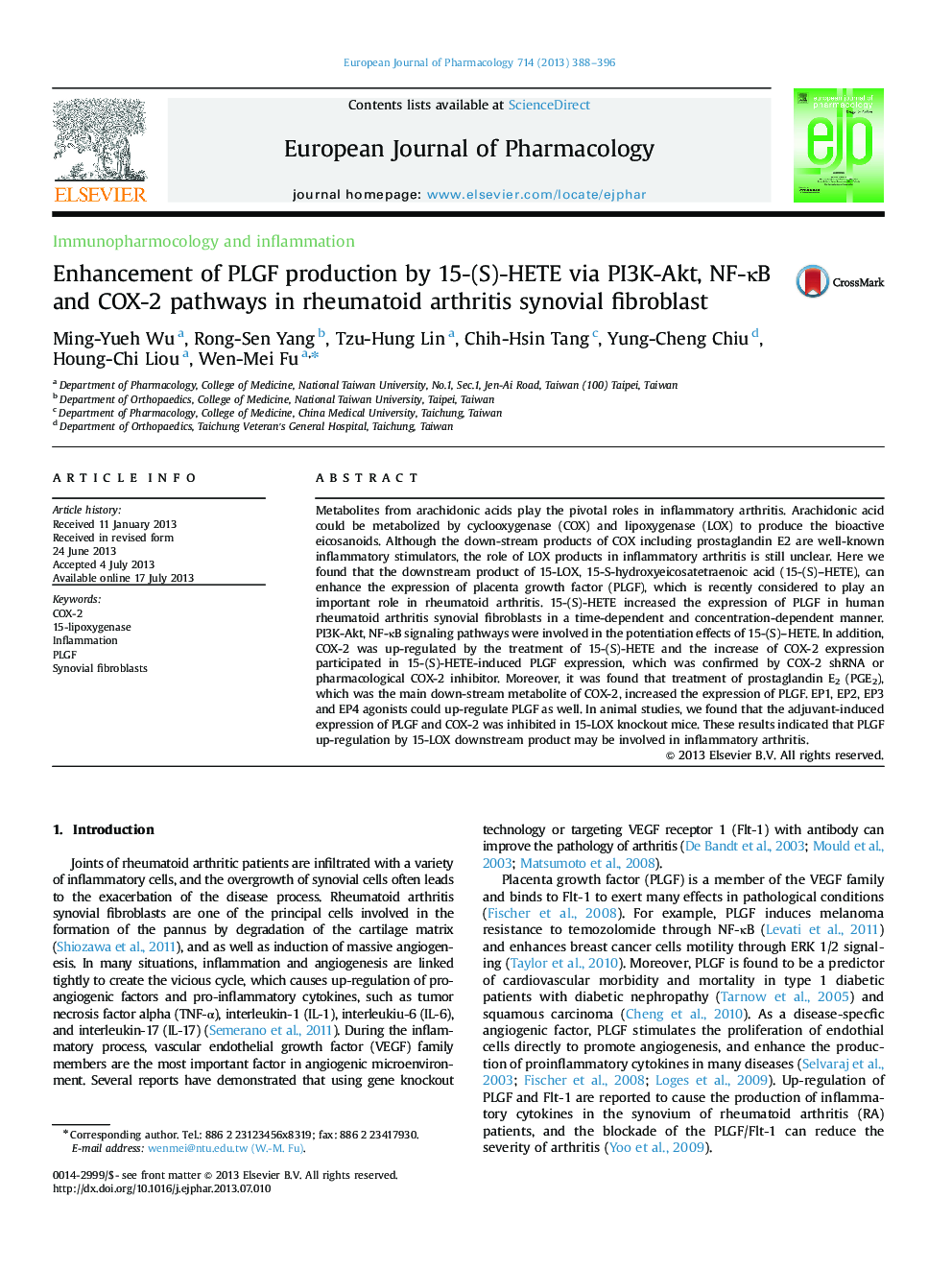| Article ID | Journal | Published Year | Pages | File Type |
|---|---|---|---|---|
| 5828627 | European Journal of Pharmacology | 2013 | 9 Pages |
Metabolites from arachidonic acids play the pivotal roles in inflammatory arthritis. Arachidonic acid could be metabolized by cyclooxygenase (COX) and lipoxygenase (LOX) to produce the bioactive eicosanoids. Although the down-stream products of COX including prostaglandin E2 are well-known inflammatory stimulators, the role of LOX products in inflammatory arthritis is still unclear. Here we found that the downstream product of 15-LOX, 15-S-hydroxyeicosatetraenoic acid (15-(S)-HETE), can enhance the expression of placenta growth factor (PLGF), which is recently considered to play an important role in rheumatoid arthritis. 15-(S)-HETE increased the expression of PLGF in human rheumatoid arthritis synovial fibroblasts in a time-dependent and concentration-dependent manner. PI3K-Akt, NF-κB signaling pathways were involved in the potentiation effects of 15-(S)-HETE. In addition, COX-2 was up-regulated by the treatment of 15-(S)-HETE and the increase of COX-2 expression participated in 15-(S)-HETE-induced PLGF expression, which was confirmed by COX-2 shRNA or pharmacological COX-2 inhibitor. Moreover, it was found that treatment of prostaglandin E2 (PGE2), which was the main down-stream metabolite of COX-2, increased the expression of PLGF. EP1, EP2, EP3 and EP4 agonists could up-regulate PLGF as well. In animal studies, we found that the adjuvant-induced expression of PLGF and COX-2 was inhibited in 15-LOX knockout mice. These results indicated that PLGF up-regulation by 15-LOX downstream product may be involved in inflammatory arthritis.
